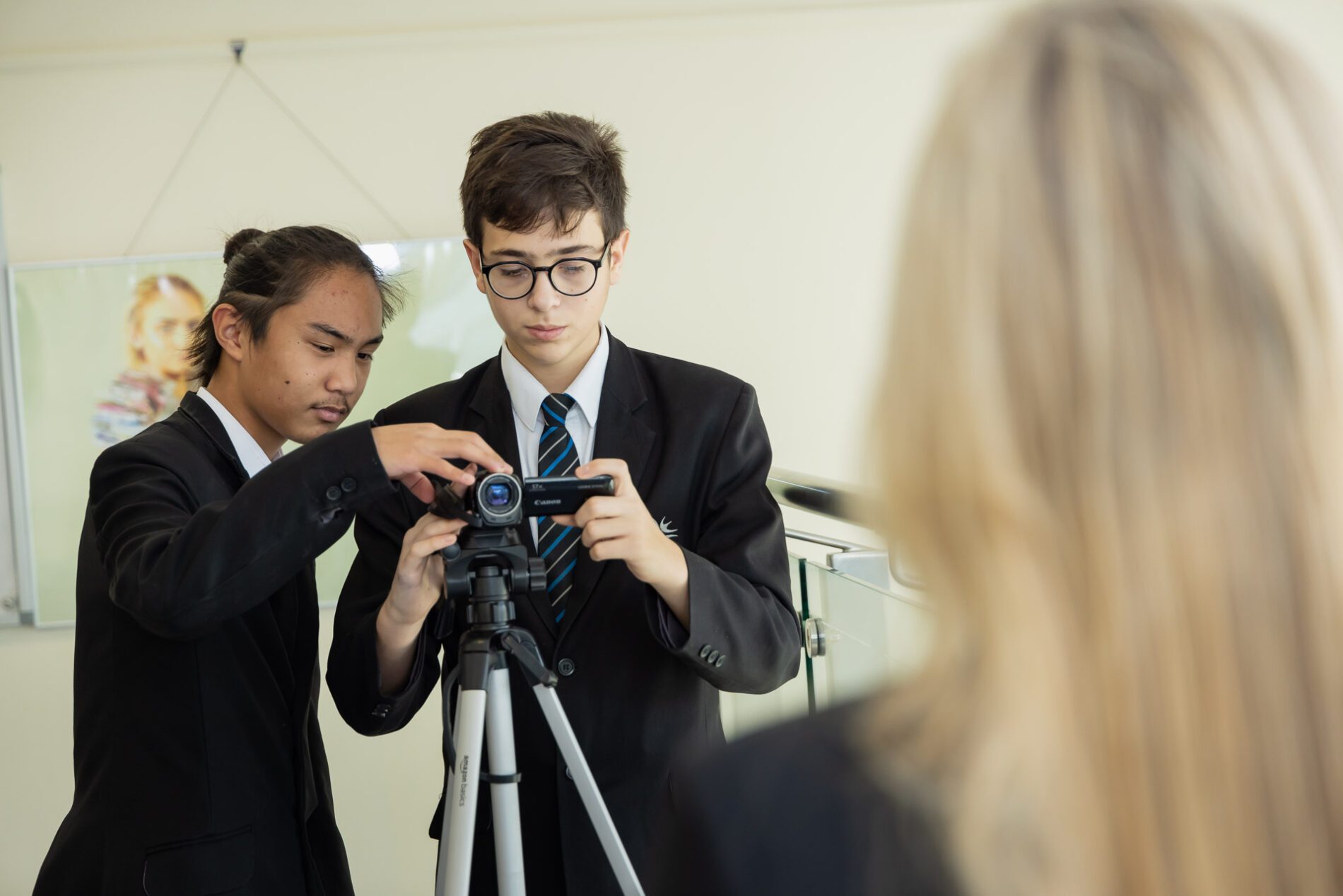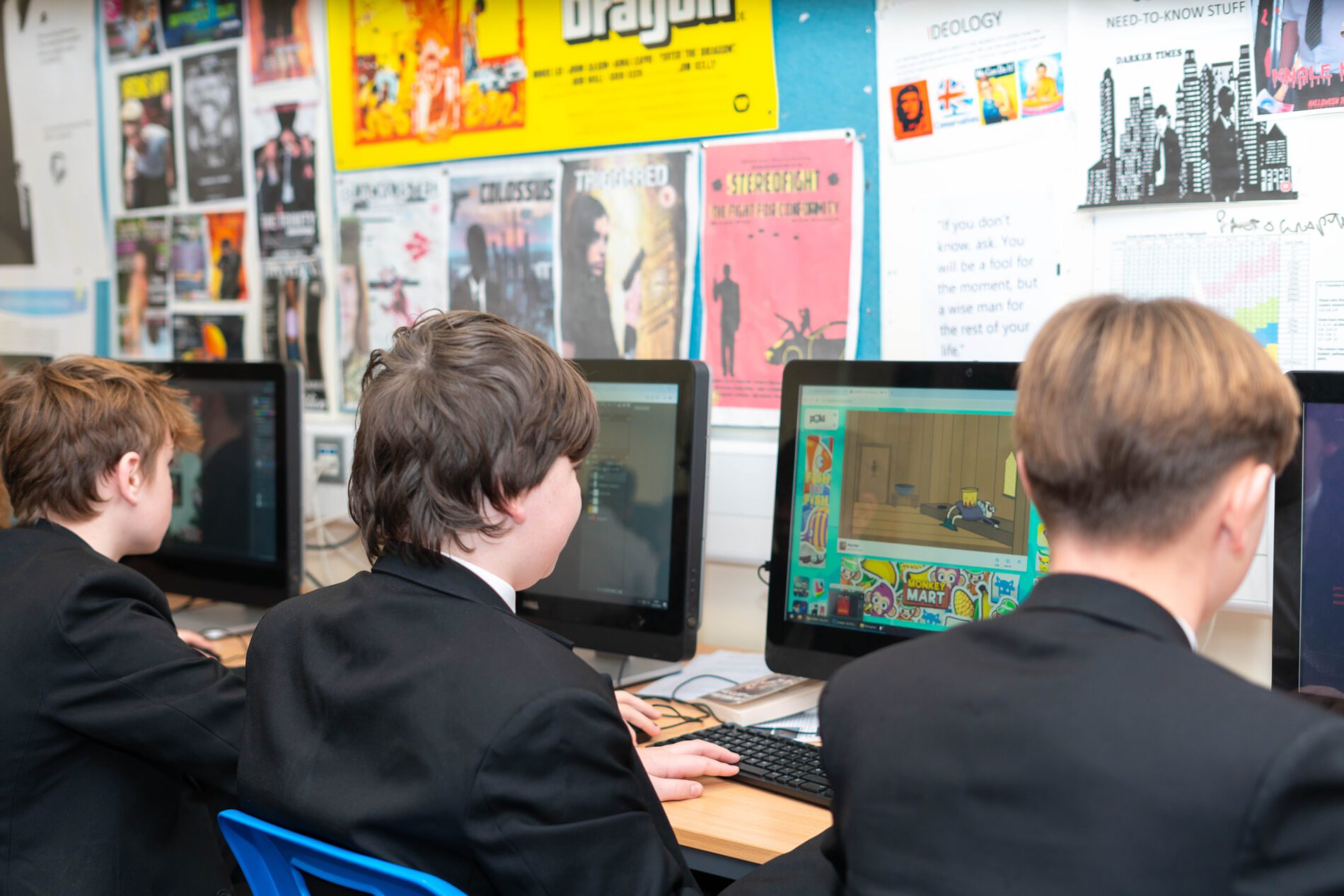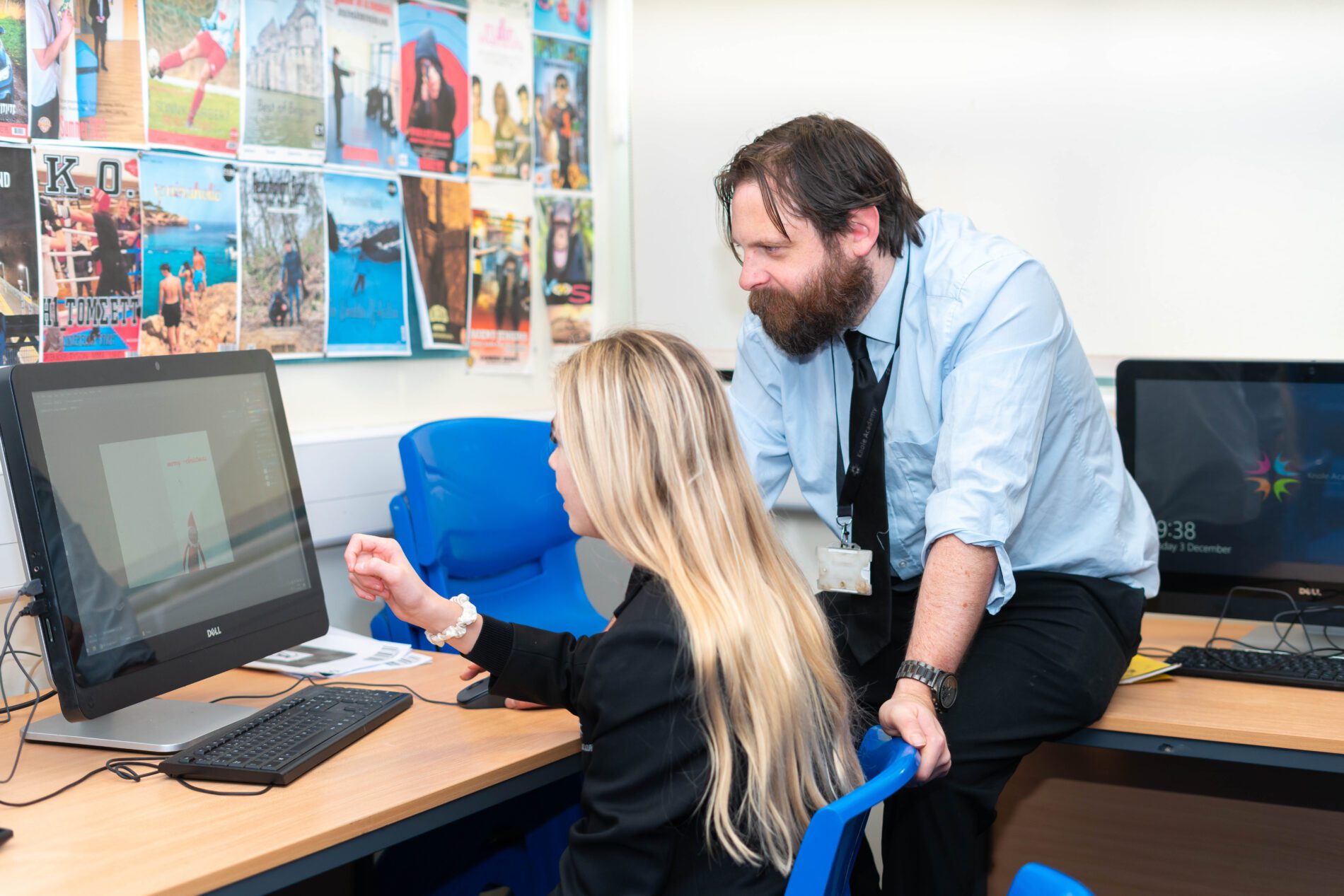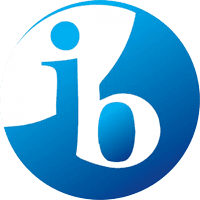Subject Leader: Miss C Shea – cshea@knoleacademy.org
Subject Teachers: Mrs C Gouli
Exam Board: OCR
GCSE Qualification: Cambridge Nationals Level 1/2 in Creative iMedia
Intent
The OCR Creative iMedia course is designed to inspire and prepare students for the dynamic world of digital media. Through units R093 (Creative iMedia in the media industry), R094 (Visual identity and digital graphics), and R097 (Interactive digital media), learners develop a strong understanding of how media products are planned, created, and evaluated. The curriculum encourages creativity, critical thinking, and technical skill development, laying the foundation for future study or careers in graphic design, marketing, web development, and beyond.


Implementation
Students follow a structured and engaging programme that blends theory with practical application.
- In R093, they explore the media industry’s structure, job roles, and the lifecycle of media products.
- In R094, they learn how to create visual identities and digital graphics using professional design tools, applying principles of layout, colour theory, and branding.
- In R097, students design and develop interactive digital media products such as websites or apps, considering user experience, accessibility, and functionality.
Lessons are project-based, allowing students to work independently and collaboratively while building a portfolio of creative work.
Impact
By the end of the course, students are confident in using digital tools and applying design principles to real-world scenarios. They gain transferable skills in planning, communication, and problem-solving, which are valuable across many industries. The course also fosters resilience and adaptability, as students respond to briefs, meet deadlines, and reflect on feedback. Many go on to pursue further education in media, IT, or creative arts, equipped with a solid foundation and a professional mindset.

Examination Information
Exam Board: OCR
Qualification: OCR Cambridge Nationals Level 1/2 in Creative iMedia
OCR Creative iMedia is designed to provide students with the foundational knowledge and hands-on creative skills needed for success in the digital media industry. The course promotes digital literacy, creativity, and problem-solving through engaging, real-world projects. Students learn how digital media is developed by planning, designing, and producing media products in response to realistic client briefs—building valuable transferable skills that support both personal growth and future career opportunities.
Course Highlights:
- Practical Skills: Students gain experience in key areas such as graphic design, video editing, animation, and the creation of interactive media products.
- Industry Understanding: The course introduces students to the tools, techniques, and software commonly used in the digital media sector.
- Digital Literacy: Learners develop a strong grasp of digital media principles and how to apply them effectively.
- Transferable Skills: The course nurtures essential skills including research, planning, communication, teamwork, and problem-solving—useful across all subjects and career paths.
- Creativity & Independence: Students are encouraged to think creatively and work independently, producing media products that meet specific client needs.
- Career Readiness: Through practical, industry-relevant projects, students are well-prepared for further study or careers in the creative and digital media fields.
- Critical Awareness: The course also explores important issues such as legal, ethical, and security considerations in digital media.
R093: Creative iMedia in the media Industry (40%)
Externally marked. 1 hour 15 minutes.
- A mix of short answer and structured questions based on stimulus material covering all of the specification content.
R094: Visual Identity and Digital graphics (30%)
Internally marked. Coursework.
Students complete 3 assignments based on:
- Topic Area 1 – Develop Visual Identity
- Topic Area 2 – Planning Digital Graphics
- Topic Area 3 – Creating Visual Identity and Digital Graphics
R097: Interactive Digital Media (30%)
Internally marked. Coursework.
Students to complete 3 assignments based on:
- Topic Area 1 – Planning an Interactive Digital Media
- Topic Area 2 – Creating Interactive Digital Media
- Topic Area 3 – Reviewing Interactive Digital Media
Enrichment and extra-curricular activities
Students have the film and media editing suites they can use for any projects they would like to do.
Future Courses and Possible Careers
Students can progress further to IB Film and then to Media and/or Film and Television Degrees.
Some examples of careers with an Film and Television degree include filmmaking, cinematographer, screenwriter, Journalist, Copywriter, Teacher, Marketing Executive, Editor, Freelance Writer, Librarian, Publisher, Web Editor, Author, Social Media Manager and PR manager. But this list isn’t exhaustive.
There are also plenty of companies that recruit Film and Media graduates. PR agencies such as Edelman and Brunswick and publishers like Penguin Random House and Harper Collins have a range of editorial, writing and content management roles. Almost all industries now rely on having a very visible presence in the ever more competitive media landscape. This means having media technological skills puts students that learned those skills above other candidates. Not only that, but the theoretical knowledge will also help them use the practical skills they would have learned to best advantage.

